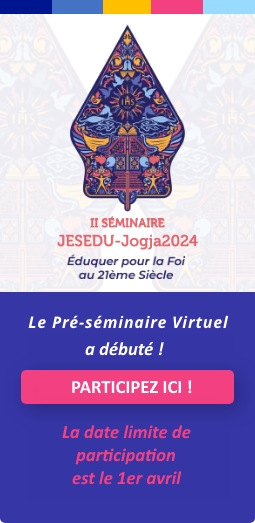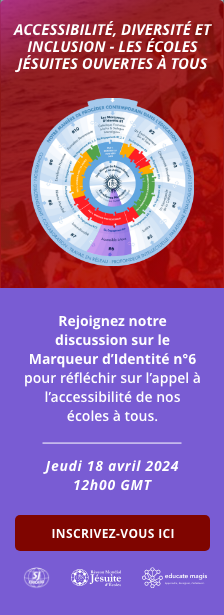“The delegates commit to urge the schools to reflect on the nature of human holistic excellence (the 4 Cs) so that academic success can be understood in its proper context. The delegates also commit to urge the schools to reflect on traditional notions of success and failure in the lives of our students.” (Rio Statement: 2017) The world appears to define human success with the prism of wealth and power. In the process, the means to this achievement is ignored and even absolved at times. This may not be considered a new phenomenon but the world has generally defined success in these terms.
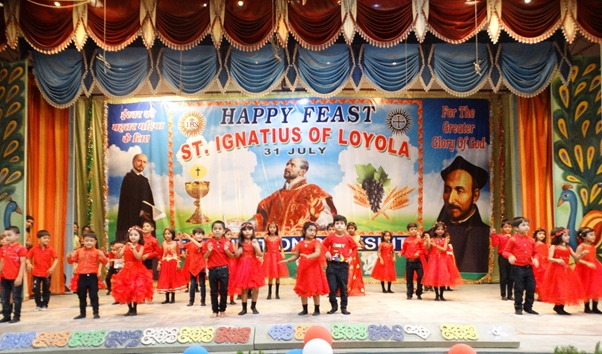
St. Ignatius of Loyola prior to his conversion is a classic example of this understanding of achievement. But a lone canon ball in the battle of Pamplona, became the starting point of a journey, which would redefine for himself and the world success and achievement. The spiritual journey granted to St. Ignatius by God the Father, who taught him like a school master, enabled him to help his companions gain spiritual experiences to view the world and its attractions through the lens of being united with the God. They came to believe that “Man is created to praise, reverence, and serve God our Lord, and by this means to save his soul. And the other things on the face of the earth are created for man and that they may help him in prosecuting the end for which he is created.” (Principle and Foundation). Therefore St. Ignatius wrote to the Duke of Bravia, when he was requested to open stadium generale that “we tend in our colleges to stress the formation for life rather than the acquisition of knowledge.” That was human excellence for St. Ignatius.
Jesuit Education continued this mission of forming persons of excellence since the inception of their first school in Messina in 1548 some 470 years ago. The Jesuits have constantly articulated their world vision and goals of education through progressive discernment, reading the signs of the times. The General Congregations and the Superior Generals have contributed to this search for meaningfulness and relevance in today’s world where education is understood and viewed with a utilitarian outlook. This desire to redefine and reinvent the core values of Jesuit Education lead Fr. Peter Hans Kolvenbach to say that “We aim to form leaders in service, in imitation of Christ Jesus, men and women of competence, conscience and compassionate commitment.” (Peter-Hans Kolvenbach SJ, 29th April 1993).
The Jesuits continued their discernment for relevance and responded to the global concerns and challenges of the late twentieth and early twenty first centuries in various ways. The last ten years have seen a renewed vigour and vitality in Jesuit education through various steps the Jesuit Education Ministry has undertaken to respond to the myriad challenges of this century. The ICJSE (2012) was a step in this direction. This was followed by SIPEI (2014) and the JESEDU- RIO (2017) leading to the Rio Action Statement which we are trying to implement in our Jesuit schools.
The efforts to put the Rio Action Statement into practice are founded on Ignatian Heritage, Ignatian Spirituality and Formation Programmes to form persons of Human Excellence. Patna Province of the Society of Jesus has undertaken important steps to implement these in their schools. The province education commission has drawn out plans to achieve this in the coming few years.
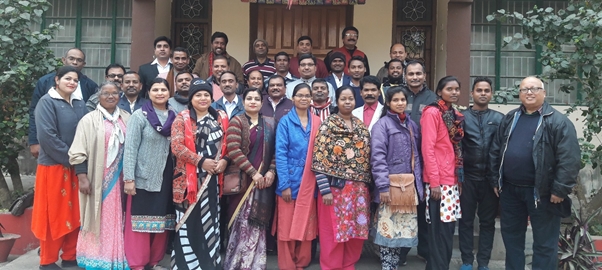
We have begun the process of sharing our Ignatian Heritage with our collaborators through a series of Ignatian Leadership Training programmes. The first training programme was conducted in January 2019 in which lay delegates from all the Jesuit Schools were trained in Ignatian Spirituality and Leadership. These delegates are expected to undertake leadership roles in our schools and the training programmes will continue.
Our focus of attention and efforts in the formation of persons of human excellence are our students. The Province Education Commission has undertaken two programmes in this direction during the current academic year. The first is to share and popularise Ignatian Examen as a way and method of constant personal growth. The students are taught the meaning and method of Ignatian Examen and they practice it daily in the school.
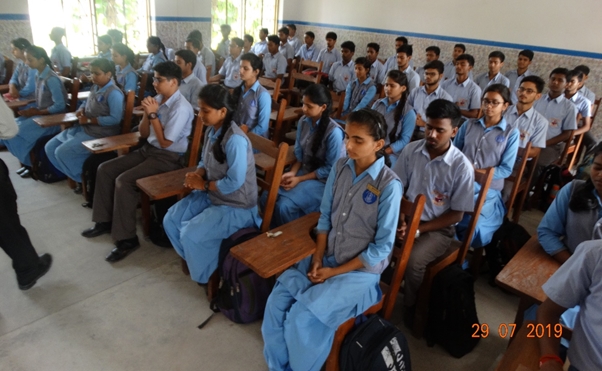
The second programme in this direction is a series of formation programmes for students of grade six to ten. These programmes are developed keeping in mind the psychological and spiritual growth of the students as they attempt to respond to the challenges by developing 21st century skills in their formation as persons of human excellence.
The province education commission will refocus and redevelop these programmes in true Ignatian way by using the action, reflection, action paradigm to make them relevant and fruitful in their quest to form persons of human excellence in their schools.
Se connecter ou Adhérer
pour créer et afficher des commentaires
